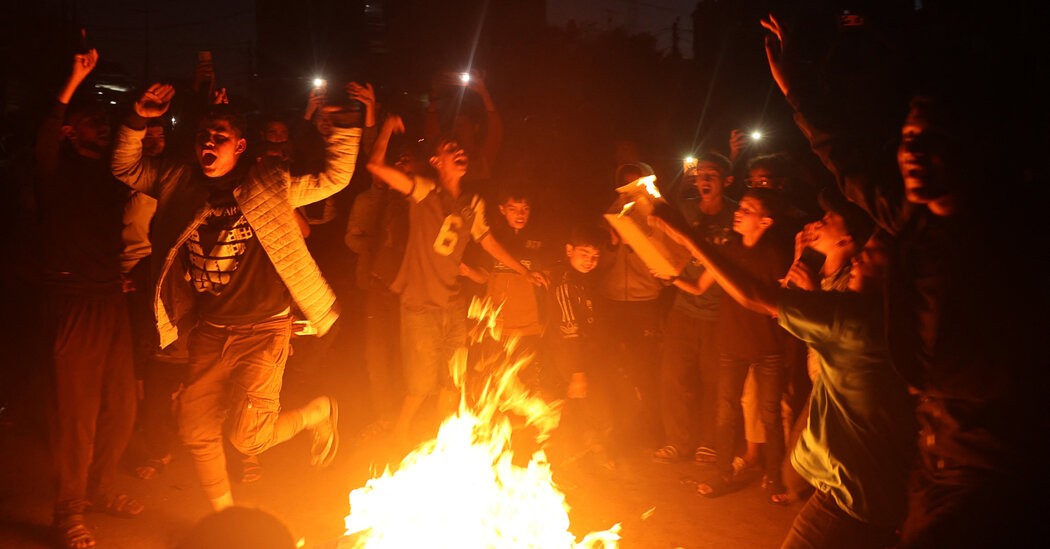
But Israeli leaders have also vowed to conduct a major military operation in Rafah against Hamas forces they believe are fortified there. Netanyahu has repeatedly said that Israel will invade Rafah with or without a ceasefire agreement.
Hamas wants Israel to withdraw all its forces, but Israel says it must maintain control of security in Gaza.
Israel withdrew its forces from Gaza after previous conflicts with Hamas in 2014 and 2009, but this time Israeli leaders say it's not that simple.
During the Hamas-led attack on October 7, Palestinian gunmen overwhelmed communities and military bases near Gaza, killing around 1,200 people, according to Israeli officials.
Israeli leaders have pledged to do whatever is necessary to ensure that such an attack can never happen again, and say that means maintaining the Israeli army's freedom to operate in Gaza.
Israeli forces have also demolished many buildings within the Gaza border area to create a buffer zone with Israel, drawing international criticism.
At least in public, Hamas has rejected a long-term Israeli military presence in the Palestinian enclave, including a buffer zone. In March, a senior Hamas official, Ghazi Hamad, said the group was willing to accept a phased Israeli withdrawal as part of a potential ceasefire deal, provided Israel committed to withdrawing completely from the Gaza Strip.
Netanyahu's political calculations complicate his government's ability to reach a deal.
Netanyahu has repeatedly said he is committed to bringing home hostages held in Gaza, but his political survival depends on far-right allies in his governing coalition who oppose the current proposed deal.
Two of those allies – the finance minister, Bezalel Smotrich, and the national security minister, Itamar Ben-Gvir – have denounced the proposed deal, saying it amounts to a Hamas victory. They called on Israeli forces to immediately launch a ground operation in Rafah.
Netanyahu's coalition holds 64 out of 120 seats in Israel's parliament, meaning any defections could endanger his mandate and pave the way for elections.
Yair Lapid, the leader of Israel's parliamentary opposition, said he would support Netanyahu to approve a deal to bring the hostages home to Israel. But that would leave Netanyahu totally dependent on some of his harshest critics in the opposition – a political alliance that is unlikely to last long.
